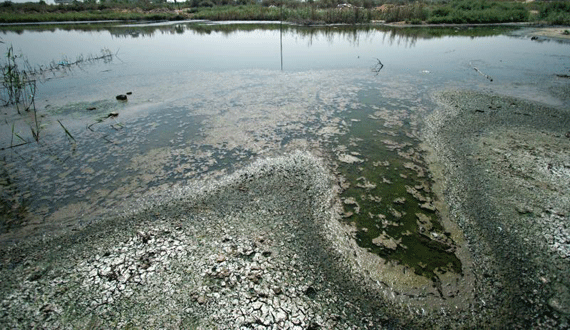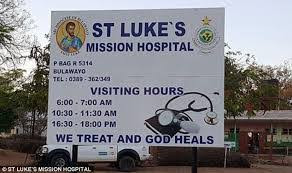
THE United Kingdom (UK) is funding water and sanitation projects in Zimbabwe worth $85 million until 2015, with Bulawayo receiving close to $6 million to rehabilitate water treatment and sewage plants, among other projects. NQOBANI NNDLOVU STAFF REPORTER
British ambassador to Zimbabwe, Deborah Bronnert, said the $85 million would be channelled through the Department for International Development (DFID) agency to enable about three million people to have access to safe clean water and improved sanitation.
“The UK is currently supporting two major water and sanitation programmes in Zimbabwe covering both urban and rural areas. In all, we are providing a total of $85 million for water and sanitation projects in Zimbabwe up to 2015,” Bronnert told journalists after touring Criterion Water Works on the outskirts of Bulawayo yesterday.
From the $85 million, $30 million would be for improving water and sanitation infrastructure in urban centres with the remainder being for rural areas that “have been neglected the most, receiving only 4% of the total government funding for the water sector”.
“Through our bilateral arrangement, we are aiming to address this imbalance. DFID target by 2015 is for 1,5 million more people in Zimbabwe to be provided with access to clean water and 1,14 million more people to have access to improved sanitation.
“We are on track to hit these targets with some $13 million per year earmarked for each of the next two years to support the water sector,” Bronnert added.
She said the rehabilitation of water and sanitation projects for Bulawayo under the Bulawayo Emergency Water Augmentation Programme (Bewap) began in March 2013 to increase the supply of clean and adequate sanitation facilities targeting 140 000 residents.
The programme was implemented through World Vision with local non-governmental organisations like Dabane Trust.
- Chamisa under fire over US$120K donation
- Mavhunga puts DeMbare into Chibuku quarterfinals
- Pension funds bet on Cabora Bassa oilfields
- Councils defy govt fire tender directive
Keep Reading
The Bewap programme entailed the construction and repair of boreholes, rehabilitation of treatment and sewage plants, construction of elevated water tanks and sanitation facilities and replacement of pipes.
A total of 46 schools and five clinics in Bulawayo had their sanitation facilities rehabilitated while elevated water tanks were constructed at 80 schools and social welfare centres.
“By addressing infrastructure needs and promoting hygiene education, the aim of the programme was to significantly reduce the risk of a return of cholera to Bulawayo,” Bronnert added.
“The additional water and sanitation facilities provided and repairs to the sewage system should reduce the risk.
“Moreover, in the event that cholera did reoccur, the local health facilities should be |better prepared to reduce the spread of the disease and related illnesses.”










